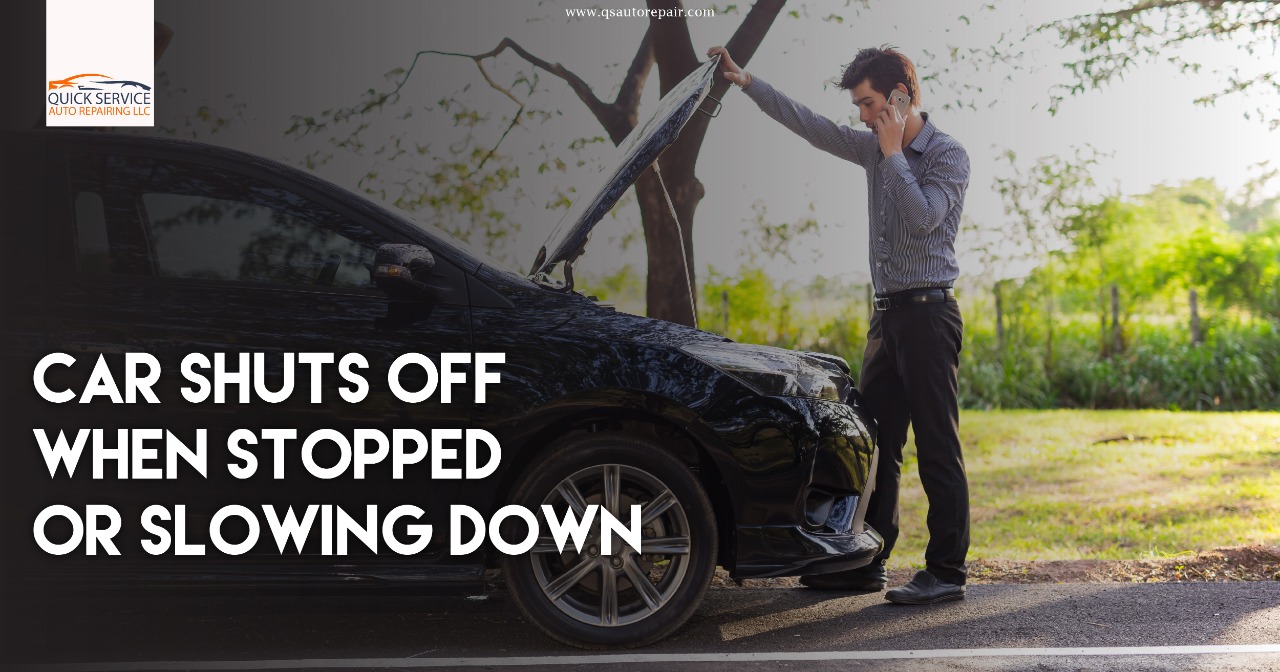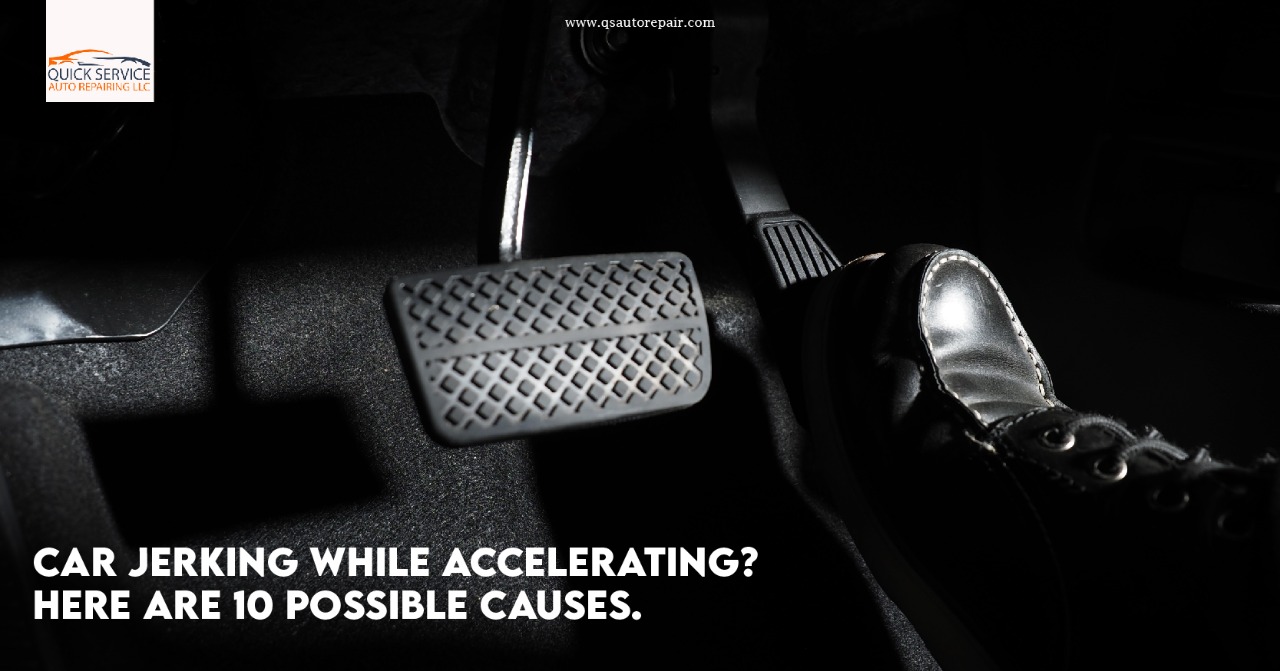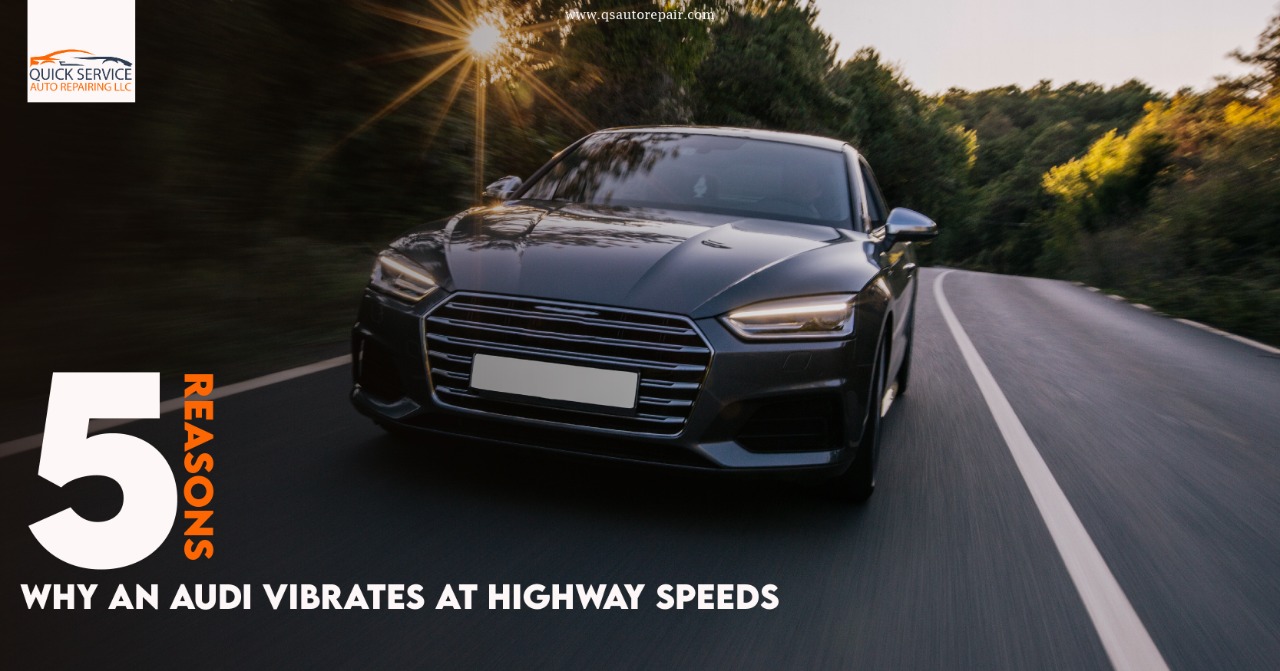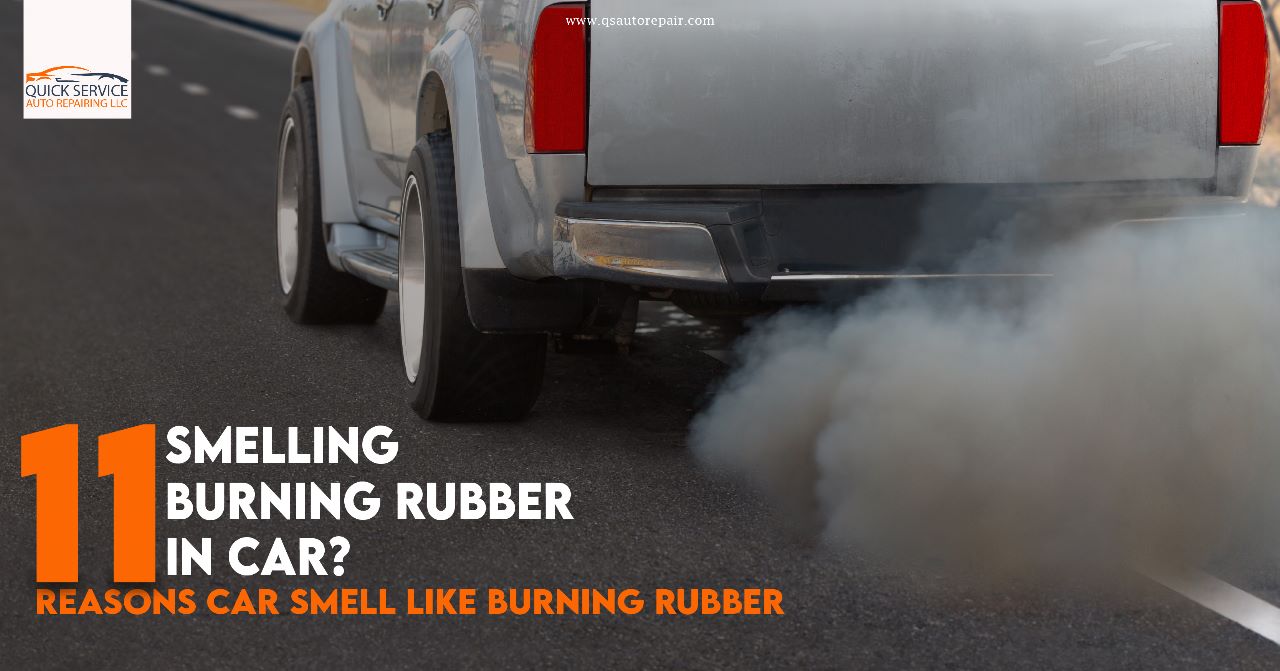We Are Open 7 Days a Week
Fri to Thu 08:00 AM - 10:00 PM
Car Shuts Off When Stopped or Slowing Down

If you’ve ever had your car shut off unexpectedly when stopped or slowed down, you know the feeling of panic. Unfortunately, this is a common experience for many drivers. The good news is that there are several potential causes for this problem, and there may be easy solutions to get your car back up and running.
The most likely culprits behind a car shutting off when it stops or slows down are related to the ignition system, fuel delivery system, battery, or starter motor. Of these issues, problems with the battery and starter motor tend to be the most common; however, other components can also cause your vehicle to shut down unexpectedly. It’s essential to have your vehicle inspected by an experienced mechanic who can diagnose these issues accurately and provide an effective solution.
Common Reasons Why Your Car shuts off when stopped or slowing down
Drivers worldwide have experienced a car suddenly shutting off when stopping or slowing down. Worryingly, this issue can lead to dangerous traffic situations, and it is essential to understand the possible causes of this problem. Here we will discuss what causes the engine to shut off and some common reasons why car shuts off when you slow down or stop.
Faulty Fuel Pump:
A faulty fuel pump can be a severe issue for car owners everywhere. When the fuel pump is not working correctly, the vehicle will often shut off when stopped or slowing down. This sudden shutdown can present a dangerous situation on busy roads and highways. Car owners must take steps to prevent this problem from occurring and know what to do if their fuel pump fails while driving.
The leading cause of a faulty fuel pump is wear and tear in the system over time. As the age of a part, they become less effective at providing enough pressure for proper engine operation. Another common cause of this issue is an electrical problem with the wiring or connections in the system. In either case, it can lead to incomplete combustion in the engine and eventually total shutdown of the vehicle when stopped or slowed down.
Clogged Fuel Filter:
A clogged fuel filter can be a significant annoyance for any car owner. If your vehicle suddenly stops running when you are stopped or slowing down, the culprit may be hidden within your car’s fuel system. This commonly occurs when the fuel filter becomes clogged and cannot pass enough gasoline to keep your engine running.
Not only does a clogged fuel filter affect performance, but it can also damage other components of your car if not addressed quickly. To prevent costly repairs and downtime, understanding what causes a clogged fuel filter and how to identify the problem early on is essential for all drivers.
Faulty Alternator:
An alternator is integral to your vehicle as it supplies electricity to essential components like the headlights, radio, and horn. Without a functioning alternator, these systems will fail to work correctly and can cause your car to shut off completely. Several symptoms are associated with a malfunctioning alternator, including dim headlights and slow battery charging.
Additionally, if you experience difficulty starting the engine after stopping for more than a few minutes, this could also be due to an issue with the alternator. Fortunately, diagnosing an issue with the alternator isn’t overly complex, as most mechanics have diagnostic tools that can identify problems quickly and accurately.
Empty Fuel Tank or Low Fuel Pressure:
An unexpected shut-off while driving can significantly cause worry and frustration. When your car shuts off when stopped or slowing down, it could be caused by an empty fuel tank or low fuel pressure.
To determine if the issue is an empty fuel tank or low fuel pressure, there are some steps you can take. First, check your vehicle’s gauge to see how much gas is left in the tank. If the gauge indicates that you are close to being out of gas, then it’s likely that running out of gasoline is causing your vehicle to stall when slowing down and stopping.
Faulty Ignition Switch:
A faulty ignition switch can be a problematic issue for drivers. It typically occurs when a car shuts off suddenly when it is stopped or slowing down. This issue can appear in newer and older vehicles, with the most common signs being failure to start up again after stalling, slow engine crank time and power loss while driving.
To identify why a car is shutting off unexpectedly, drivers should consider checking their ignition switch first, as this could be the root cause of the problem. Ignition switches supply power to the starter motor and other electrical components, such as the fuel pump and coil packs, so if they’re not functioning correctly, these components won’t receive any power. A professional mechanic must check your ignition switch at least once a year to ensure that your vehicle operates safely and reliably on the road.
(MAF) Mass Flow Sensor Malfunction:
Mass flow sensor malfunctions (MAF) are a common issue among car owners and can result in several problems, including the vehicle suddenly shut off when stopped or slowing down. This can be an incredibly frustrating problem as it may render the vehicle unsafe to drive.
Understanding what causes a mass flow sensor malfunction and how to diagnose and repair it are essential steps towards getting your vehicle back on the road if you feel there is a problem in MAF, you should check engine light.
A mass flow sensor measures the amount of air entering an engine’s fuel combustion chamber. The information provided by this device helps to regulate fuel injection and other engine functions accordingly. When a MAF fails, it cannot accurately measure air intake, leading to improper fuel delivery and the vehicle stalling or shutting off entirely when stopping or slowing down.
Engine Control Unit Issues:
Engine Control Unit (ECU) issues can cause various car problems, including one frequently affecting drivers: the vehicle suddenly shuts off when stopped or slows down. This issue can be incredibly frustrating and dangerous, as it can happen unexpectedly in traffic or when exiting the highway.
The ECU monitors and controls various engine components, such as fuel mixture, ignition timing, and idle speed. If any of these functions fail due to a defective ECU or a faulty wiring connection to this system component, it can result in the car shutting off without warning while driving. Other possible causes include debris in the throttle body, air intake system, or clogged fuel injector.
Foul Spark Plugs:
Foul spark plugs are one of the most common reasons a car shuts off when stopped or slowing down. Spark plugs have a crucial role in the operation of your vehicle, as they help ignite the air and fuel mixture within the engine’s cylinders to create an explosion that powers the pistons.
When these spark plugs become fouled, either from excessive fuel deposits or oil contamination, it can cause all sorts of problems for your car’s performance, including stalling and shutting off when stopped or slowing down.
It is essential to recognize when your car is exhibiting signs of fouled spark plugs so that you can address the issue right away. Common symptoms include misfiring during acceleration, rough idling, hard starting and reduced engine power.
Defective Idle Air Control Valve:
A defective idle air control valve can significantly cause a car to shut off when stopped or slowing down. This valve is located in the intake manifold and aims to regulate an engine’s idle speed. It controls the air entering the engine, which alters the fuel mixture for proper combustion. If this valve becomes stuck or fails to close correctly, it can cause the car’s engine to shut off or stall when coming to a stop.
Several tests should be done to diagnose if a defective idle air control valve is causing your car to shut off. A mechanic may use an oscilloscope to measure how much voltage is being sent from the computerized system on board your vehicle as it tries to open and close the IACV during various RPMs and speeds.
Bad Oxygen Sensor:
A bad oxygen sensor can cause a car to shut off when stopped or slowing down. The oxygen sensor is an integral part of a car’s engine management system, and its failure affects its overall performance. The oxygen sensor works by monitoring the amount of unburned oxygen in the exhaust stream and adjusting the air-fuel ratio accordingly.
If it fails, it can cause your car to run too rich or too lean, leading to stalling and other performance problems. Additionally, you may experience reduced fuel economy and increased emissions from your vehicle.
If you suspect that your car might have an issue with its oxygen sensor, there are several things you should do. First and foremost, check for any diagnostic trouble codes (DTC) related to this component to confirm the diagnosis.
Cracked Spark Plug Wires:
Cracked spark plug wires can be a significant cause of car troubles and should not be ignored. If you notice your car suddenly shutting off or sputtering when stopped, it may be due to cracked spark plug wires. This issue should not be overlooked as it can result in more severe damage if left unaddressed.
The spark plug wires carry the electrical current from the distributor cap to the spark plugs, igniting the fuel inside the engine cylinders for combustion. A crack in any of these wires will prevent this current from reaching its intended destination and cause your vehicle to shut down. You can check for cracks by looking at each wire individually and ensuring no visible damage or fraying. You may also hear a ticking sound when accelerating if one of your spark plug wires has gone wrong.
Crankshaft Position Sensor Malfunction:
Crankshaft position sensor malfunctions are a common issue with vehicles and can cause the car to shut off when stopped or slowing down. A crankshaft position sensor is a device that monitors the rotation speed of the engine’s crankshaft, sending signals to the vehicle’s electronic control module (ECM).
The ECM then uses these signals to monitor ignition timing and adjust engine performance accordingly. If there is a malfunction in this system, it can cause fuel injection problems or even complete engine shutdown.
One of the most common signs of crankshaft position sensor malfunction is when your car stalls or suddenly shut off while driving at low speeds or stops at an intersection. Other symptoms include erratic idling, difficulty starting, stalling after start-up and misfires during acceleration.
Weak Battery:
A weak car battery is a common issue that can cause your car to stall when stopped or slowed down. If the battery is weak, it won’t be able to maintain a steady voltage output – which the car needs to continue running. Fortunately, there are ways to identify if you have a weak battery and how best to fix it.
When diagnosing the issue, checking for faulty connections or corrosion on the battery’s terminals and overall condition is essential. If these issues are found, they should be addressed immediately, as they can cause poor performance and further damage over time. Additionally, if your vehicle is over three years old, it may be time for a new battery, as its lifespan is typically about four years. Also, it would be best to take the car to an Auto Repair Centre to charge the battery.
Faulty Starter Motor:
A faulty starter motor can bring a car to an unexpected halt, especially when the vehicle is in motion. This can be both dangerous and inconvenient for drivers. A starter motor that fails to engage correctly may cause the vehicle to shut down while stopped or slowing down, leaving the driver stranded at the side of the road.
The most common symptom of a faulty starter motor is difficulty starting the engine, with clicking sounds or no sound coming from underneath the hood. Another telltale sign is if your car shuts off unexpectedly as soon as you release pressure on the accelerator pedal or come to a stop after driving for some time. If you encounter either of these issues, it’s essential to have your starter motor checked and replaced if necessary to ensure your vehicle’s safe operation.
Diagnosis: Check for Problems
Car owners are all too familiar with the feeling of panic that comes when an engine shuts off unexpectedly. If a vehicle is shutting off when it is stopped or slowing down, it’s essential to have it checked out by a professional mechanic. It could be anything from a minor issue, such as a faulty spark plug or something more severe, like a fuel pump failure. No matter the cause, proper diagnosis and repair are essential for safely getting back on the road.
The first step in diagnosing this type of problem is to check the engine codes using an onboard diagnostic tool. This will help pinpoint any potential issues with the car’s systems that could be causing it to shut off while driving or at idle. Additionally, mechanics can check for loose connections, vacuum leaks, bad sensors, and other mechanical problems that could be causing your vehicle to shut off when stopped or slowing down.
Solutions: Fix the Problem of Car to stall while driving
Car stalling when you come to a stop is not only annoying but can be dangerous as well. This problem is caused by a lack of fuel getting to the engine; fortunately, it’s fixable. Here are some potential solutions for when your car shuts off when stopped or slowing down.
The first solution involves checking the vacuum lines for any leaks or blockages. The vacuum lines control the flow of air and fuel into the engine, so if there is an issue with them, it can cause your car engine to stall at stop signs or red lights. Next, you should check your car’s idle speed; if it is lower than usual, this could also contribute to a stalling issue. Finally, have a mechanic inspect your carburettor and fuel filter, as they can cause similar problems too.
Cost Considerations
Regarding vehicle maintenance and repair, cost considerations are always top of mind. For those who have experienced their car shutting off when stopped or slowing down, understanding the potential causes and associated costs of repairs can be a daunting task.
The good news is that there are a few common causes for this issue beyond more severe engine problems, each with its own set of costs associated with fixing the problem. Potential culprits include a faulty ignition switch or starter relay, which may require replacement; a lousy battery connection that could be remedied with cleaning; an issue with the fuel pump or filter; or an oxygen sensor malfunction. Depending on the cause behind the stalling, you may need to replace one part of your car’s system entirely or pay for labour fees and additional materials needed to make repairs.
Prevention: how to Stop the Car Shuts off While Driving, Slow Down or Stop
Preventive maintenance is essential to ensure your car runs smoothly and safely. Regularly scheduled maintenance can help you spot any potential problems before they become serious. In this article, we’ll be looking at what might cause a car to shut off when stopped or slowing down and how regular maintenance can help prevent it from happening in the first place.
The most common reasons for such behaviour include a faulty spark plug, vacuum leak, fuel filter issue, fuel pump problem or an issue with the ignition coil. As the manufacturer recommends, such issues are avoidable if you take your car in for regular servicing and check-ups. During these visits, mechanics will inspect all major components of your vehicle, including oil levels, brake pads and rotors, battery terminals and hoses that may need replacement due to wear and tear over time.
Conclusion
This article concludes that there are several potential causes for a car shutting off when stopped or slowing down. To identify the root cause, it is essential to have a mechanic inspect the vehicle and diagnose the issue. Common causes include a faulty fuel pump, worn-out spark plugs, dirty air filters or clogged injector lines.
Other potential causes may include electrical problems such as poor wiring connections or blown fuses. In any case, it is imperative to take the necessary steps to determine what is causing your car to shut off when stopped or slowed down. Doing so can ensure that your car runs properly and safely on the road.









